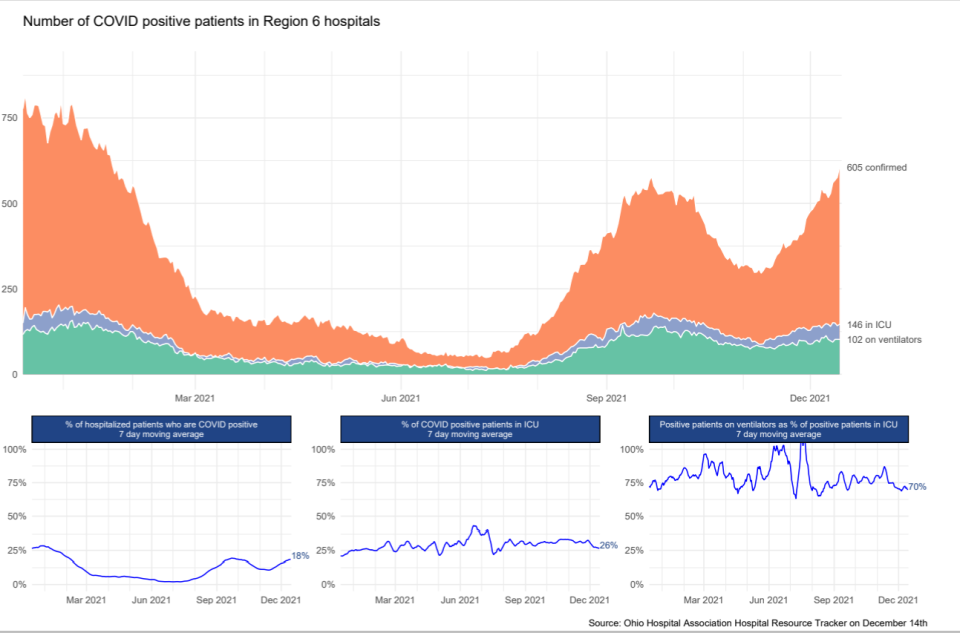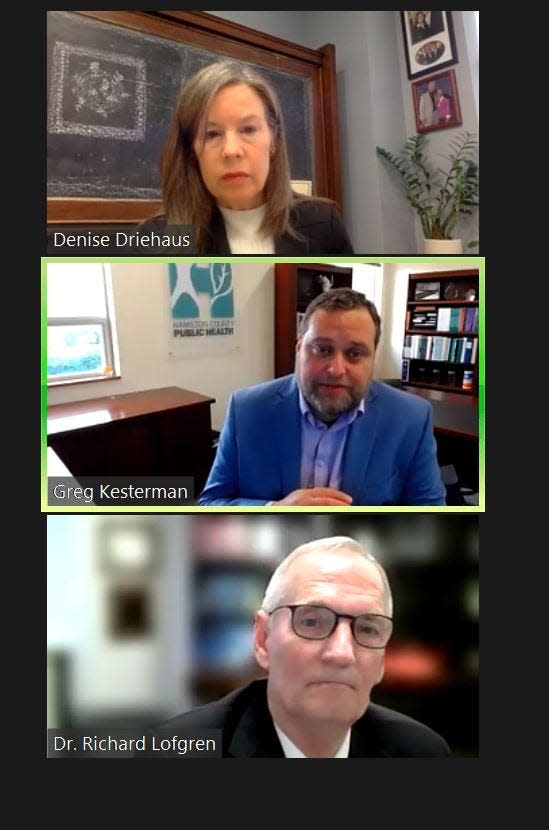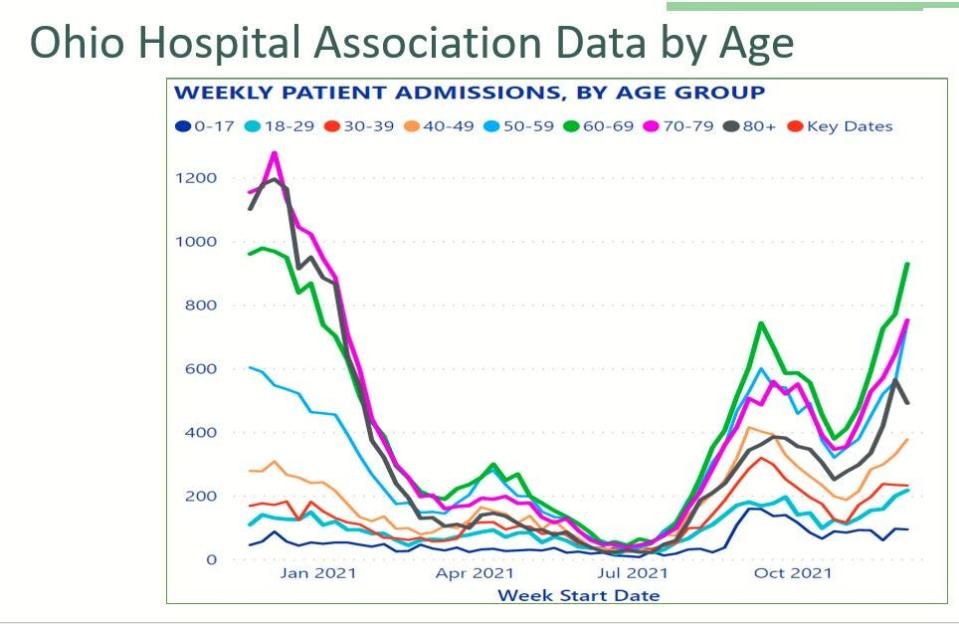'This pandemic is actually overwhelming our health systems,' UC Health leader warns
The leader of UC Health delivered grim tidings Wednesday about the continuing intense strain on local hospitals as unvaccinated COVID-19 patients, largely in their 60s, fill beds at levels not seen since last winter.
“We're at the point where we're actually making sort of real-time decisions about whether or not we can accommodate more procedures at this point,” said Dr. Richard Lofgren, president and chief executive officer of the region’s adult academic health system. The most critical problem, he said, is staffing.
“This pandemic is actually overwhelming our health systems,” Lofgren said.

Cleveland-area hospitals have already taken the step of postponing nonessential surgeries and procedures because of the rising COVID-19 tide, and the Cincinnati region could reach similar crisis levels in as little as a few weeks, Lofgren said.
Lofgren spoke Wednesday at the Hamilton County online briefing on the novel coronavirus pandemic. The news conference came a year after the start of the national vaccination campaign against the virus. At the time, public health and hospital officials expressed hope that the vaccine could stop the pandemic.
Until midsummer, the campaign had brought down caseloads, but despite aggressive efforts to persuade people to get vaccinated and boosted, just 69% of Hamilton County residents 12 and older have received immunizations as of Wednesday. The gap between vaccinated and unvaccinated populations allows the virus to spread and mutate.

In Ohio, the delta variant of the coronavirus remains predominant, although county Health Commissioner Greg Kesterman reminded that two cases of the omicron variant turned up in central Ohio last weekend. In South Africa, where the variant was first detected only a month ago, omicron has proven to be more infectious than delta.
As of Tuesday, 605 people were hospitalized across the region with COVID-19, the most since February. That census has risen nearly 20% since Dec. 7.
Kesterman said 90% of patients are unvaccinated, and the majority of the hospitalized are in their 60s, he said, a significant drop in age from a year ago, when the majority of COVID-19 patients were in their 80s.
“We see more and more people in the hospital system, and this will translate to more death here in the coming weeks,” Kesterman said.

Lofgren said hospital staffs are thinner now than a year ago as the stresses of the patient load drive out nurses, doctors, respiratory therapists and other caregivers who have worked under red-zone conditions for 21 months.
“Last year, we asked our frontline providers to do heroic work, and they really went above and beyond to deliver the level of care,” he said. “One of the things that people need to understand is that when we get overwhelmed in the health care system with COVID, not only does that hurt our ability to take care of COVID patients, it affects our ability to deliver non-COVID care.”
This article originally appeared on Cincinnati Enquirer: COVID-19: 'Overwhelmed' Cincinnati hospitals may mean some care gets delayed

